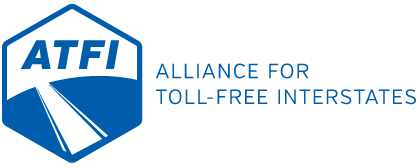The Interstate System Reconstruction and Rehabilitation Pilot Program will not expand which states are allowed to toll existing interstates. However, the program will not go away anytime soon with the Fixing America’s Surface Transportation Act’s latest revisions.
The five-year FAST Act was signed into law by President Barack Obama on Dec. 4. The bipartisan legislation passed the U.S. House of Representatives on Dec. 3 by a vote of 359-65 and the Senate later that same day by a vote of 83-16. The 1,300-page legislation authorizes federal surface programs through fiscal year 2020, providing $305 billion for roads, bridges and mass transit.
Section 1411 in the “Miscellaneous” section of FAST Act amends certain parts of U.S. Code Title 23 and the Transportation Equity Act for the 21st Century that addresses tolling, HOV facilities and reconstruction and rehab plan.
The new law maintains the three slots in the pilot program currently available without the ability of additional slots being created. Currently, the pilot program allows Missouri, Virginia and North Carolina to implement a toll on existing interstates. FAST Act will allow these states one year to move forward with tolling plans before losing their slot in the program.
If any of the current participating pilot program states lose their slot, any state awarded the new opening will have three years to complete its tolling project with a possible one-year extension, according to new FAST Act law.
The Alliance for Toll-Free Interstates (ATFI) applauded the decision to not expand the number of states allowed to participate in pilot program. However, the anti-toll group was less excited about the extensions and three-year window for participants in new slots.
“This will likely open the door to additional applications in the future,” ATFI told Land Line in a statement. “The (Interstate System Reconstruction and Rehabilitation Pilot Program) is an outdated pilot program that should ultimately be repealed in its entirety, and the Alliance will continue to oppose all efforts to toll existing interstates under this program.”
Corrected language from the Senate’s bill, DRIVE Act, ensures that revenues from tolls are not diverted to unrelated purposes and secures a place for public input on pilot program projects.
“Through the FAST Act’s passage, Congress has demonstrated again that we can fund highway and transit projects, making travel safer and more efficient for Americans, without resorting to imposing tolls on existing interstates,” ATFI said.

